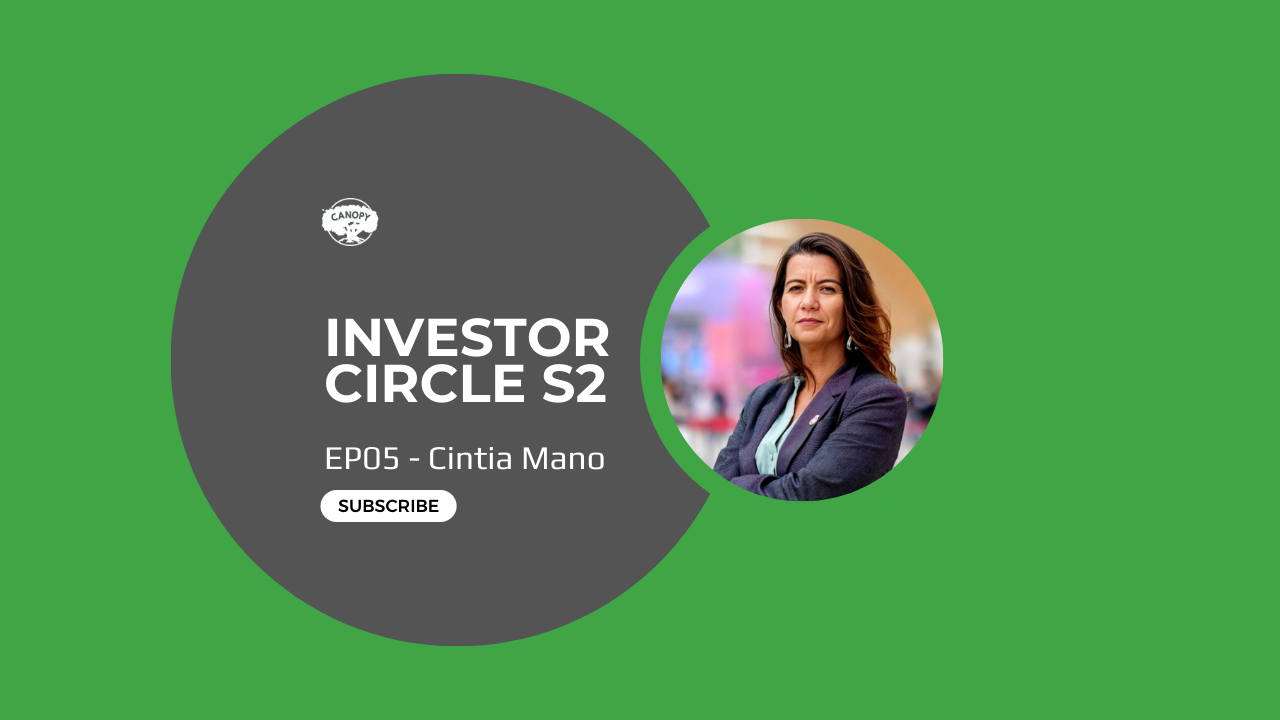Investing as a Collective: The Core Angels Model and Cintia Mano’s Mission to Democratise Capital
Jul 11, 2025
What if angel investing wasn’t a solo sport, but a team game? Cintia Mano, CEO of Core Angels, has reimagined early-stage investment as a collaborative, accessible movement. In this Investor Circle conversation, Cintia shares how Core Angels is opening up the investor ecosystem—particularly for women—and challenging outdated assumptions about who gets to write the cheques.
At the heart of Core Angels is a simple but powerful idea: angel investing should be collective, guided, and inclusive. Their model unites 14 angel funds across different countries, each with its own investment thesis but grounded in shared methodology. Instead of isolated investors making individual bets, Core Angels fosters learning and collective decision-making. For early-stage founders, this means aligned investors who are in it for the long run—and often for the right reasons.
Cintia’s recent book Angel Investing Explained is a handbook designed to demystify the world of early-stage investment. It’s already been translated into Portuguese and Spanish to reflect the global community Core Angels serves. And it’s not just for aspiring angels—many startup founders are reading it too, hungry to understand how investors think and what motivates them.
One major takeaway? Women often want to be informed before taking risks. “It’s not that women are less risk tolerant,” Cintia says, “but they want to know the consequences if something goes wrong.” The gender gap in angel investing, she argues, is more about information than access. That’s why Core Angels prioritises education and mentorship just as much as financial return.
So, what’s stopping more people from becoming angel investors? According to Cintia, it’s partly fear—of liability, of complexity, of getting it wrong. And partly because the traditional models haven’t evolved fast enough. But the tide is turning. Micro-investments, syndicate models, and tech-enabled funds are making it easier to back startups with as little as €1K or €5K.
And what about founders? Cintia is clear: don’t rush to raise money. “Know what game you’re playing,” she says. Not every business needs VC money. Grants, angel rounds, crowdfunding, and bootstrapping are all valid pathways—if they match your vision and values. And when you do raise, raise only what you need. Overcapitalising early can dilute your ownership and complicate future rounds.
Her top two investment criteria? Market potential—and team. Founders must be adaptable, resilient, and humble enough to listen to the market. “It’s not enough to have a great idea,” she says. “If you can’t sell it, it doesn’t matter.”
She also voices caution about outsourced tech. While it’s fine for commodity builds, your tech stack is part of your core value proposition. “If it’s strategic, it has to be inside the company,” she insists.
As for AI? Cintia is watching the tools, but staying human. She sees generative AI enabling non-technical founders to build MVPs, reduce costs, and test ideas quickly. But the real differentiator? Authenticity, emotional intelligence, and empathy. “What makes you different from the machine is your humanity,” she says. “And that’s your edge.”
Cintia’s vision is bold: entrepreneurship as a tool for social mobility. Especially in secondary cities and underserved communities. She sees startups as fast-moving, impactful engines of inclusion—if we build ecosystems that reflect the diversity of founders and their lived experiences.
Watch the full interview back https://youtube.com/playlist?list=PLrMrateB2yVX5-hCIM9mPGjG0eUQELOA6&si=hjBkNmRoy35uwGS6
Listen to the podcast (audio) episodes https://investorcircle.buzzsprout.com
